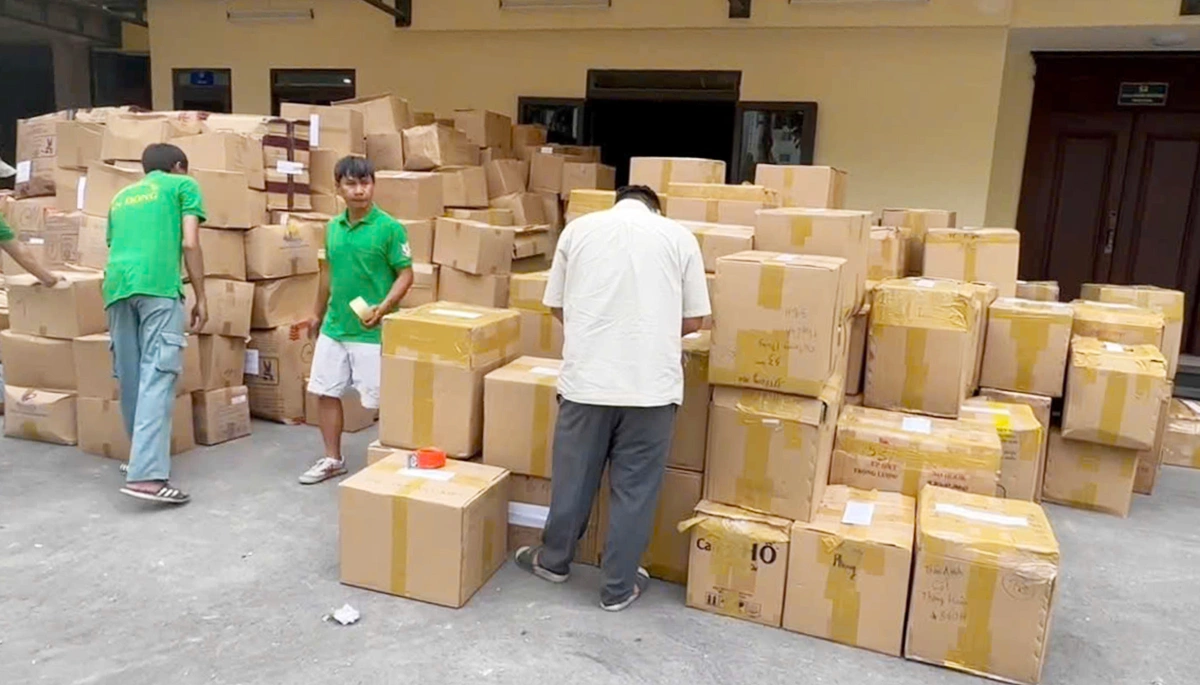During a July 22 meeting with the National Assembly's Committee for Culture and Social Affairs regarding counterfeit medicine and food prevention in Ho Chi Minh City, the Department of Health revealed that this operation was the most significant among 9 recent busts by law enforcement.
Authorities confiscated nearly 1,600 kg of unidentified raw materials, hundreds of kilograms of packaging materials, labels, and medicine boxes, along with manufacturing equipment (capsule filling machines, blister packers, polishing machines, and boxing machines). The counterfeit medicines were primarily distributed in the Mekong Delta region via transport routes between the Delta and Ho Chi Minh City.
The production and sale of counterfeit medications have been on the rise, with several large-scale operations recently exposed. Ho Chi Minh City's Market Management Bureau has uncovered hundreds of violations, seizing hundreds of thousands of smuggled and unidentifiable medical products worth tens of billions of Vietnamese dong, leading to the destruction of a substantial amount of illicit goods.
Nguyen Hoai Nam, Deputy Director of the Ho Chi Minh City Department of Health, stated that the production and trade of counterfeit medicines and food are becoming increasingly complex. Counterfeiters operate across multiple locations, utilizing social media and delivery apps for transactions to conceal their whereabouts. Production often takes place in unmarked buildings in secluded areas or under the guise of legitimate businesses to avoid detection.
 |
Some of the counterfeit pharmaceuticals seized in Ho Chi Minh City earlier this year. Photo: Police Department |
Some of the counterfeit pharmaceuticals seized in Ho Chi Minh City earlier this year. Photo: Police Department
Ho Chi Minh City health officials say that following the city's expansion, the larger area requires coordinated efforts among agencies to control medicine quality and prevent the circulation of counterfeit and substandard products. However, limited personnel, budget, and equipment, coupled with increasingly sophisticated counterfeiting techniques, pose challenges.
Controlling the advertisement of medicines and food, particularly on digital platforms, remains difficult. Fraudulent groups use anonymous accounts, frequently change locations, employ livestream sales, and engage celebrities for endorsements. Meanwhile, many consumers, drawn by lower prices or a preference for foreign goods, favor unregulated "hand-carried" products.
The Ho Chi Minh City Department of Health has proposed that the National Assembly revise the penal code to broaden its scope and increase penalties. This includes stricter punishments for aiding and abetting counterfeit and substandard product operations that endanger public health. The People's Committee of Ho Chi Minh City suggests establishing an interagency data-sharing mechanism to intercept illicit drugs from border regions and prevent illegal domestic production. The Ministry of Health is urged to finalize the testing system plan to enhance food and drug quality control.
Le Phuong












